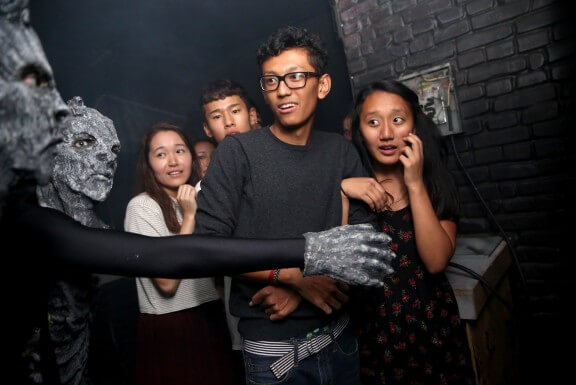 Director Bill Condon was met with a lot of resistance making “The Fifth Estate.”
Director Bill Condon was met with a lot of resistance making “The Fifth Estate.”
Credit: Getty
Making a film about a living person can be tricky, especially when that living person is Julian Assange — and even more so when that person expressly doesn’t want you making the film, as “The Fifth Estate” director Bill Condon learned.
“Here’s an actor who’s as serious as Benedict Cumberbatch, and while we’re rehearsing the movie and then shooting the movie, he’s in an email correspondence with Julian Assange — the person he’s becoming — who is saying, ‘Please would you not play me.’ Imagine how odd that is,” Condon says. “I felt such compassion for him because it was almost like being a schizophrenic.”
It also led to some heated discussions between Condon, Cumberbatch and co-star Daniel Bruhl, who played Assange’s one-time collaborator Daniel Domscheit-Berg. “You would go to breakfast on this movie or be in the makeup trailer and Daniel Bruhl, who had kind of internalized his character’s point of view, and Benedict and I would talk about the stuff that was going to be depicted that day and have disagreements about it,” Condon concedes. “It was all healthy and it absolutely made complete sense, but ultimately we all came to the place that seemed right, which was making sure that each voice got heard.”
Condon was at first hoping — perhaps naively — for some input from Assange himself, but such hopes were short-lived. “Benedict had friends who we thought would really get us in there, and he just rebuffed the idea, saying that because of the books we were basing it on he wouldn’t ‘legitimize’ it,” Condon says.
So dramatizing Assange’s story proved to be a tricky business, and not just because of the feelings of its subject. But Condon insists that “The Fifth Estate” is first and foremost a movie. “When you put something into a two-hour form and you put four cameras onto a set that you’ve built and you put a wig on an actor, you are not ultimately dealing with just facts, right?” he offers. “And a story as complicated as this — where I could point to single events where journalists and Assange were present and everyone disagrees about what happened, what was said — to claim that there is a single truth is wrong.”
Still, for Condon there was never any question about waiting to see how the WikiLeaks story further unfurled. The immediacy of it was part of the appeal for him. “In movies, you want to give people a reason to leave the house,” he says. “To me, I’m very excited about going to movies and feeling like I’m going to learn more about events that are still unfolding. The only thing I take exception to is the description of it as a biopic.”

















